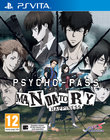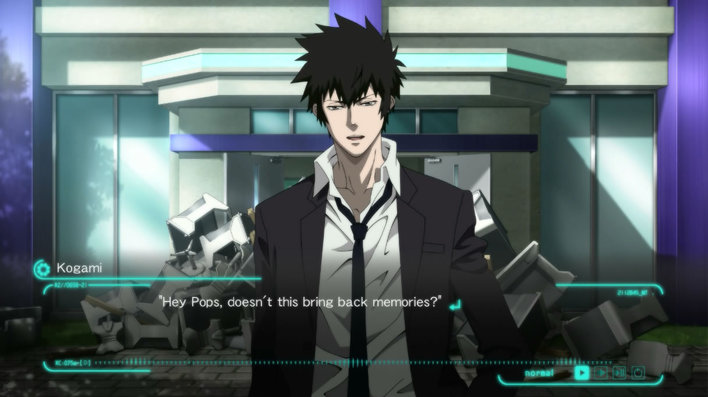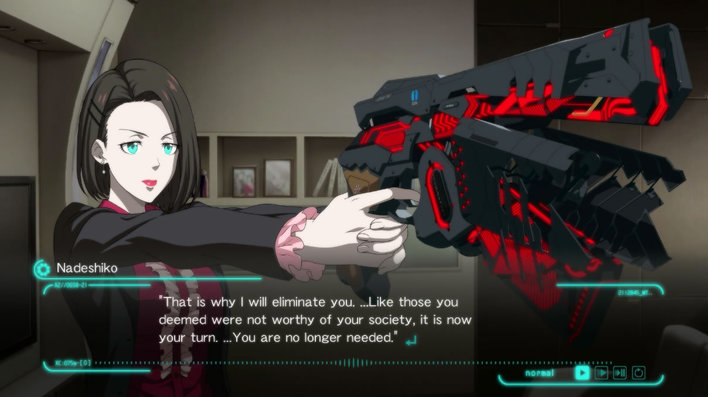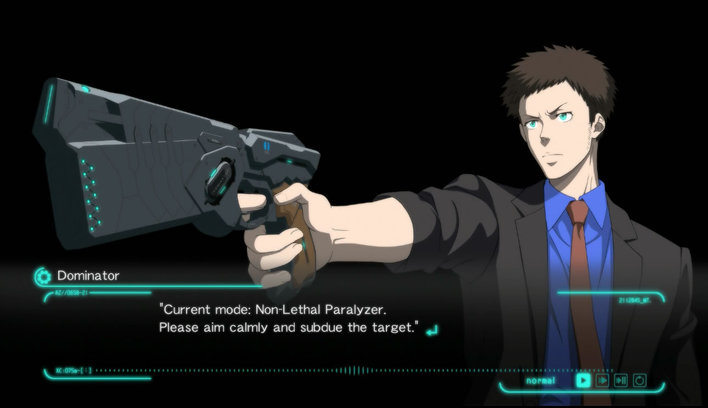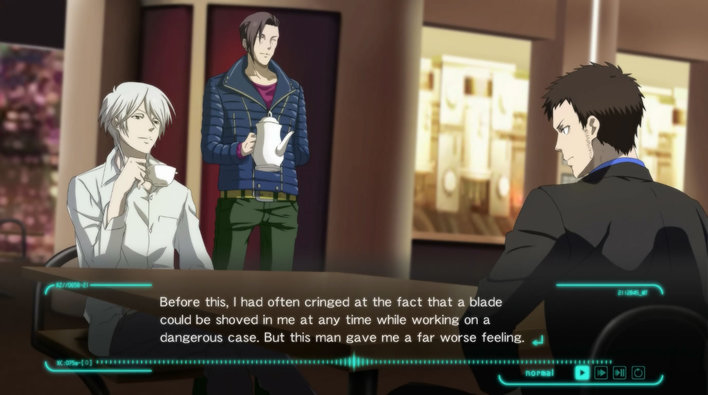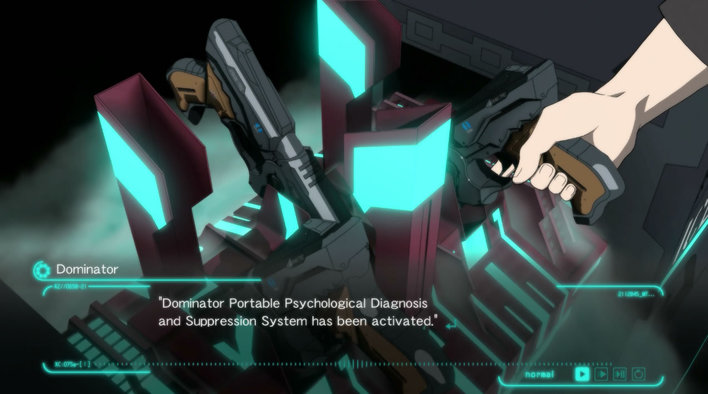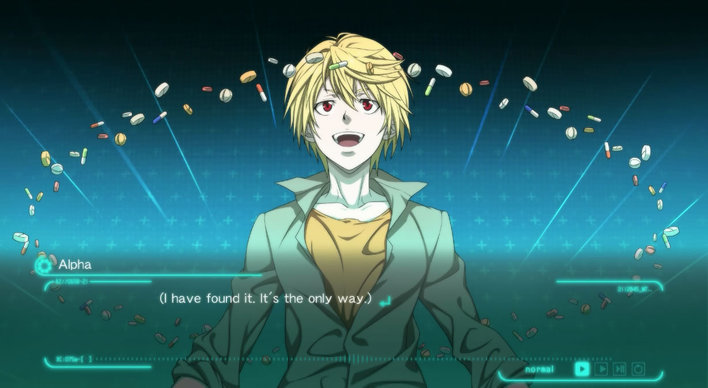For more on Psycho-Pass: Mandatory Happiness, check out our full Psycho-Pass: Mandatory Happiness review. Or, for more of the best PS Vita games for a 10 year old, why not try our Family Game Finder
What is Psycho-Pass: Mandatory Happiness?
Psycho-Pass: Mandatory Happiness is a visual novel (essentially, an interactive story - like an audiobook, but visual) that takes place in the same world as the popular anime. Set in a dystopian Japan, you play as an officer for the Public Safety Bureau, or PSB - a police force charged with monitoring the mental health of the citizens. Everyone, young or old, has a statistic known as a Pyscho-Pass, which basically gives you a reading of their happiness. Should a citizen's hue start to cloud, and their crime coefficient rise, they'll be isolated from society before they can harm anyone, and given counselling, before potentially being released back into the world. As a member of the PSB, it's up to you to catch those who fall through the net.
How do you play Psycho-Pass: Mandatory Happiness?
As a visual novel, Psycho-Pass: Mandatory Happiness is a game played entirely for its story. You don't get to investigate the crime scenes directly, nor do you get to interrogate anyone by choosing responses - all you have to do is sit back, press X to progress through the dialogue, and watch the story play out. Along the way, you'll occasionally have a choice to make, which may cause the story to branch, with the decisions you make affecting how the game plays out, and how it eventually reaches its conclusion.
How easy is Psycho-Pass: Mandatory Happiness to pick up and play?
In terms of accessibility, Psycho-Pass is simple to pick up and play - with little in the way of traditional gameplay, there's no real special requirements here, as it's simply like reading a book. All you really have to do is press X to progress through the dialogue, and choose an option from a list when you're presented with a choice. That said, there is a lot of text to get through here - playing Psycho-Pass is literally like reading a novel, making it best matched with players who like their games with a lot of story. If you want to try and find all the storyline branches, you'll also need to manage your save games very carefully.
As the game's based on the anime, a working knowledge of Pyscho-Pass and its world is a requirement here. Although the game does provide a glossary of sorts that fills you in on what the various terms mean, you'll find the game much easier going if you've already seen the first 7 or 8 episodes of the series, and are familiar with all the characters.
Sample sentences include:
- After the band and flash, they all dropped to the floor. The hostages were knocked out too, but were otherwise unharmed
- The setting was a somewhat chic apartment. A little small for a family of four, but good enough while the children were young.
- Eight captors came into view, swinging 2x4s and steel bats. There were five hostages total. Four on the floor, and one of them was lifted up by the next, being forced to stand.
Pyscho-Pass is a mature, dark game that doesn't shy away from heavy hitting subjects. One of the cases you investigate involves child abuse, and while you don't see anything gory, the game will describe injuries to people ("There were multiple footprints suggesting that the victim Naoya had his head bashed against the crib").
Any blood shown is minimal - one scene shows a character lying on the ground, with smears of blood around him after a bomb has gone off, but there's nothing too grizzly.
In terms of sex, there is some minor innuendo in the dialogue, but again, nothing too extreme ("What's this? Does Taku have a schoolgirl fetish?")
In terms of language, the words s**t, a**hole and b**tard show up in conversations.
Age Ratings
Format Reviewed: PS Vita


